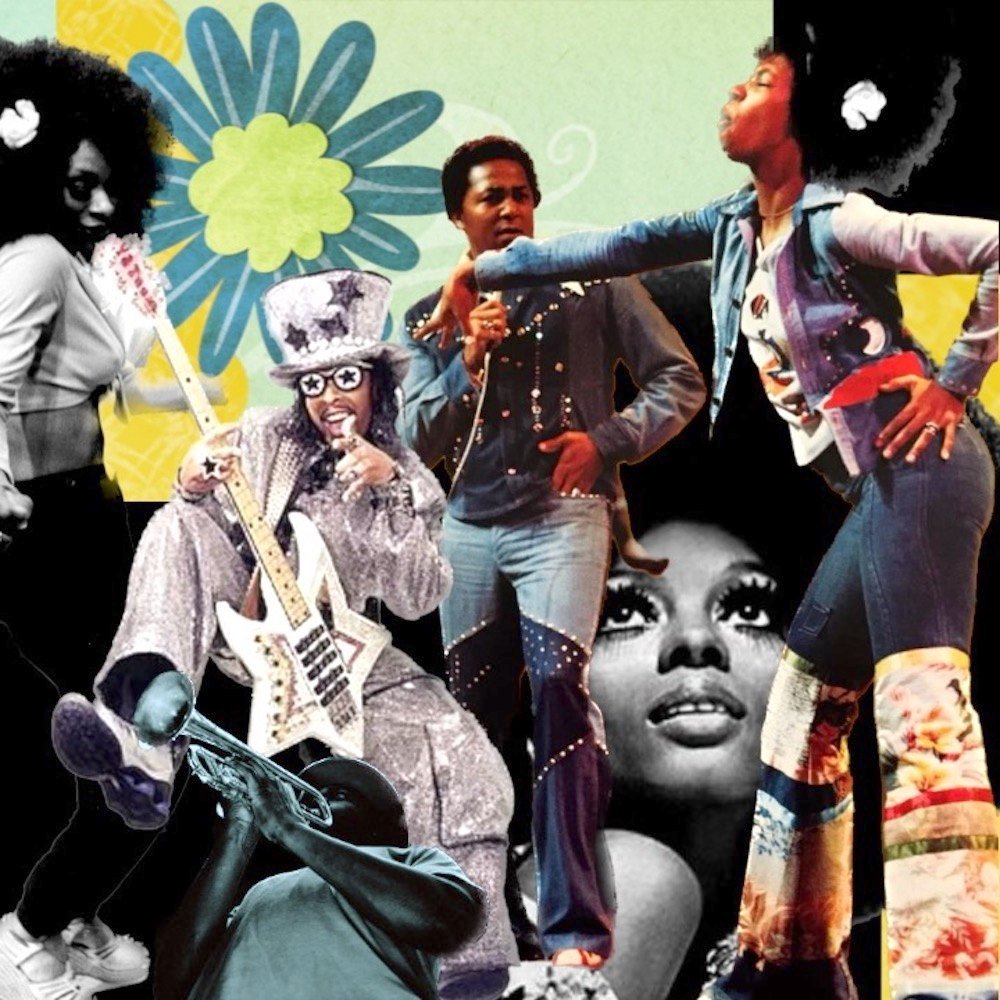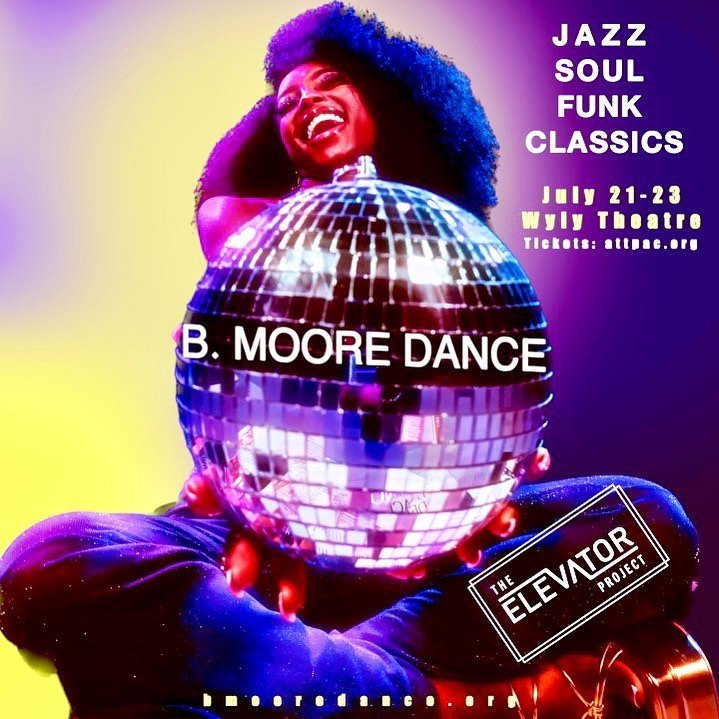B. Moore Dance Presents JAZZ-SOUL-FUNK-CLASSICS @ WylyTheatre
Photos by Jacqualen Jackson
—Ramona Harper
Did you know that Dallas is home to The Dougie, a funky hip hop dance move named after ‘80s rapper Doug E. Fresh that’s performed around the world? It originated right here in Dallas, and last weekend at the Dee and Charles Wyly Theatre, B. Moore Dance grooved The Dougie along with many other electric styles of urban street dance in an unforgettable debut performance of dance and music titled JAZZ-SOUL-FUNK CLASSICS.
Full of youthful energy, the phenomenal 10-member B. Moore Dance ensemble, among the best of local Dallas performance artists, “got down” in an eclectic program, along with a supporting lineup of smooth-as-silk vocalists and the superb six-piece Kwinton Gray Project band under the musical direction of Kwinton Gray.
When the dance music is a soulful lineup of classics by Stevie Wonder, Marvin Gaye, Aretha Franklin, George Benson, a jazzy Cole Porter, James Brown, Ella Fitzgerald, The Whispers, Gil Scott Heron, and Beyoncé, what else can you expect to experience but a program that is explosively alive with the best in Black artistic expression?
“Distant Lover,” “Rock Steady,” “On Broadway,” “The Shadow of Your Smile,” and a narrative reading of Gil Scott Heron’s 1970’s classic ode to social activism “The Revolution Will Not Be Televised” were just a few of the chart-toppers providing musical accompaniment.
Popping, Locking, Robotting, Twerking, Voguing, Jerking, Breakdancing, Gangsta Walking, Lindy Hopping and sexy House Dancing infused the street dance choreography with Soul Train energy, with Funkified Fosse and some classical adagio mood-melody, now and then, to cool things down.
Flexible torsos, long-limbed leg-raises, leaping, lunging, deep knee bends, African ethnic, pelvic tilts up to there and dizzying turns that seemed unending were performed with technical ease, indefatigable energy, and lyrical loveliness in the breathtaking program. The blast of energy from the dancers extended well into the audience, breaking through any “fourth wall” with their palpably joyous love of dancing—an energy that made it hard to keep folks from dancing in the aisles.
Colorful hip huggers, red sequined tops, tight black patent leather pants, and bell-bottomed bottoms by costume designer Fernando Hernandez kept it sexy. Side mirrors with a neon-bright floor where the knockout Kwinton Gray Project sat center-stage (lighting and set design by Christopher M. Ham) added to the excitement filling the stage.
The fiery-hot energy of the dancers was quelled somewhat by interspersing the dance performances with emotionally-moving male and female vocalists who brought their own kind of cool, soulful energy: Damon K. Clark, Aden Ambivert Sista, Miracle Foster/Mireke.l. and Reuben Lael brought the house down.
A special shoutout goes to guest dancer Claude Alexander III, whose two stellar solo performances were, as they say in the parlance, “off the chain.”
Artistic excellence and entertainment, however, were not Bridget L. Moore’s only intention in creating this stellar program. A native of Dallas, the company Founder and Artistic Executive Director has a more socially conscious purpose in mind. In a brief conversation following the show, she mentioned that she wanted to help ensure that Black culture is preserved and recognized in a region of the country that has a history of overlooking Black contributions in the arts.
And at a time when teaching Black American history is being filtered by revisionist forces that would nationally negate those contributions and distort their importance in American classrooms and academia, Moore created this program as a strong antidote.
The local flavor of the program and nuanced cultural preservation were enriched by enthusiastic onstage dance-a-longs with a handful of Sorors and Frat brothers representing Alpha Kappa Alpha sorority and Omega Psi Phi fraternity. These are two of the oldest of the “Divine Nine” Black American Greek and pillar service organizations in Black communities throughout the United States and overseas.
Black pop culture is one of America’s most important exports. JAZZ-SOUL-FUNK CLASSICS makes it impossible to deny the global impact that Black American dance and Black musical genius have had in influencing the performing arts around the world.
A young ensemble, B. Moore Dance has been performing since 2018 (with appearances at the renowned Joyce Theatre in New York and Jacob’s Pillow in Massachusetts), and has already been recognized for outstanding choreography and a superb company of strong, classically trained dancers—including being one of the arts groups in the 2022-2023 season of AT&T Performing Arts’ The Elevator Project, established in 2014 to “provide small, emerging and historically marginalized arts organizations and artists with a performance platform in the Dallas Arts District.”
Bridget L. Moore has also received many personal accolades, and has a long and accomplished career as an educator, including teaching at her alma mater, Booker T. Washington High School for the Performing and Visual Arts. She has an undergrad degree in Dance from Ohio State and an MFA from NYU’sTisch School of the Arts (Lady Gaga’s alma mater), and has been commissioned by numerous arts organizations in the United States and internationally.
B. Moore Dance Presents JAZZ-SOUL-FUNK CLASSICS was a feel-good journey down Old School memory lane and through the American Songbook of Black music and dance. The presentation soared across any generational boundaries because time and age have no limits when jazzed by B Moore Dance’s funky sound and soul-stirring movement.
Dallas will, I hope, get to see more of this company’s fabulous, homegrown talent!
When; July 21-23, 2023
Where: Dee and Charles Wyly Theatre, 2400 Flora Street, Dallas
Web: More dance @ The Elevator Project: The DASH Ensemble, July 28-30 ( attpac.org )

